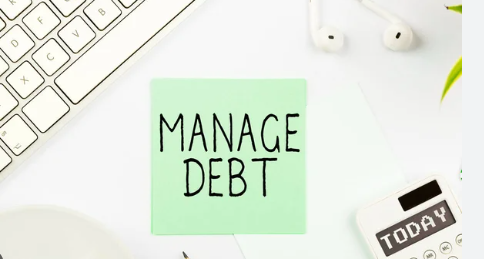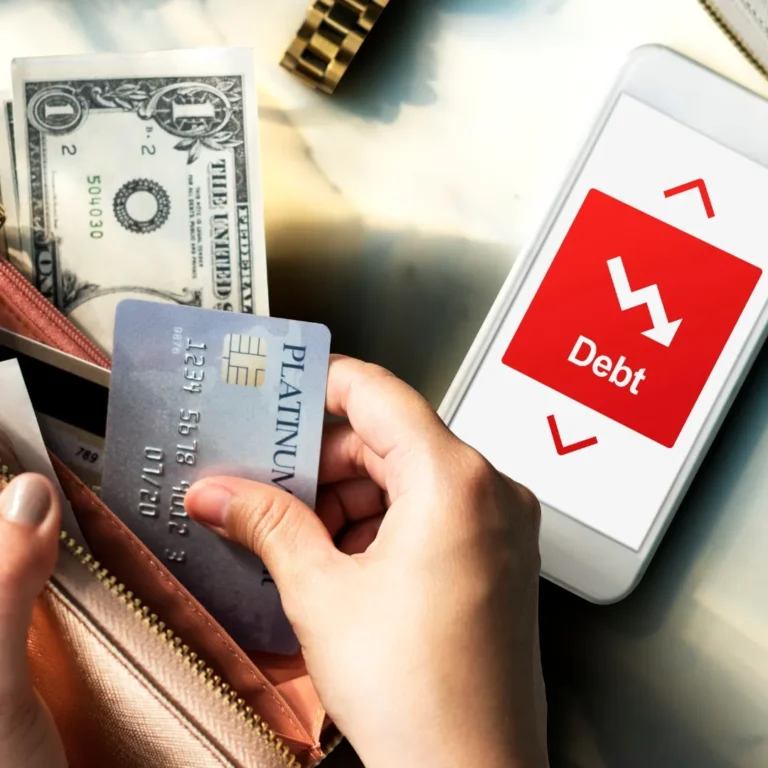Getting out of debt can feel like a huge challenge for many Americans. But, by knowing and avoiding common errors, people can move towards financial freedom. This article will look at seven main mistakes that stop people from paying off their debts. We’ll also share ways to get past these hurdles.
Key Takeaways
- Creating a budget is key to paying off debt. It helps you understand your monthly costs.
- High interest rates make loans more expensive over time. Paying off debts with the highest interest first can save money and speed up the process.
- Shopping without a list can lead to spending more than needed. Having a list before you go shopping helps reduce extra costs.
- Adjusting your lifestyle and living within your means is vital when paying off debt. Keeping an eye on your credit use is also important.
- Consolidating debt with a personal loan can make managing finances easier during repayment.
Not Budgeting Effectively
Effective budgeting is key to managing your money and paying off debt. If you’re unsure where your money goes each month, it’s time to make a budget. A budget helps you understand your expenses, find ways to save, and pay off debt.
Forgetting to Budget
Many people don’t see the value in budgeting, leading to ongoing debt. Without knowing your income, fixed costs, and what you spend on fun, making smart money choices is hard. The Federal Reserve’s 2022 Survey found that 35% of adults said their finances were worse than the year before.
Creating a detailed budget is key to controlling your finances. By organizing your spending, tracking what you spend, and setting savings goals, you can plan your way to debt freedom. The 28/36 rule is a good guideline: keep housing costs under 28% of your income and total debt under 36%.
During tough times, having an emergency fund with three to six months’ expenses is vital. This fund can protect you from high-interest debt when unexpected events or financial troubles hit.
| Budgeting Tip | Potential Impact |
|---|---|
| Adhering to the 28/36 rule for housing and total debt | Ensures financial stability and allows for savings |
| Maintaining a 3-6 month emergency fund | Provides a safety net during economic downturns |
| Automating bill payments | Prevents late fees and preserves credit score |
| Budgeting for non-monthly expenses | Avoids financial strain from irregular bills |
| Aligning spending with personal values | Promotes intentional and fulfilling money management |
By budgeting regularly and being proactive with your finances, you can escape the debt cycle. This leads to more financial stability and freedom.
Overlooking High-Interest Rates
Understanding how interest rates affect your personal finance is key. The rate on your debts can greatly change how much you pay over time. High interest rates make loans and credit card balances more expensive, slowing down your debt payoff.
The “debt avalanche” method is a good way to pay off debt. This strategy means paying off debts with the highest interest rates first. This way, you save more money on interest and pay off debt faster.
Credit card interest rates show why knowing about interest is vital. The Federal Reserve has kept interest rates high, and more people are falling behind on their credit card bills. Carrying a balance on your cards leads to high interest charges, making your purchases cost more over time.
| Debt Payoff Strategy | Advantage | Disadvantage |
|---|---|---|
| Debt Avalanche | Saves the most on interest charges | Requires discipline to tackle highest-interest debts first |
| Debt Snowball | Provides a sense of momentum and progress | May pay more in total interest over time |
Knowing about interest rates and using strategies like the debt avalanche can help you manage your finances better. Paying off high-interest debts first is a big step towards financial freedom.

“Paying off high-interest debts first is one of the most impactful steps you can take to improve your financial situation.”
Ignoring Balance Transfer Opportunities
Credit card debt can feel overwhelming, especially with high-interest rates. But, balance transfers could be a big help. Many credit cards offer low or no interest rates for a while, giving you a break to pay off your debt.
Industry data shows that balance transfer credit cards can have a 0% APR for up to 21 months. Some cards even let you transfer up to 75% of your total credit limit. This can help you combine several high-interest debts into one easier payment.
But, remember, balance transfer fees are usually 3% to 5% of the amount you transfer. Also, the interest rate might go up after the special offer ends. So, having a solid plan to pay off the debt before the offer ends is key.
Using credit cards too much can be risky, as high-interest rates can make buying things much more costly. That’s why it’s important to use balance transfers wisely. They should help you get out of debt faster, not be a long-term fix.
By using balance transfers and a good debt plan, people with credit card debt can move closer to financial freedom. This can help break the cycle of high-interest debt consolidation.
“50% of Gen Zers with credit card debt don’t know the rates attached to their credit cards.”
This fact shows how crucial it is to understand credit card terms, including balance transfer deals. Being informed and proactive helps consumers make better choices and manage their finances better.
Unnecessary Spending Habits
Keeping a healthy budget means watching out for and cutting unnecessary spending. A big mistake is shopping without a reason. Just going to the store or big retailers like Target without a list can fill your cart with impulse buys. These buys can add up fast.
Also, small, recurrent expenses like eating out, entertainment, and subscriptions can hurt your budget, especially when money is tight. Experts say these small costs can grow out of control if you don’t watch them.
Unnecessary Spending
Another trap is trying to “live the same lifestyle as wealthier friends.” This urge to match their lifestyle can push you to spend more than you can afford, leading to debt. It’s important to stick to your financial goals and not compare yourself to others, to avoid spending you can’t afford.
- The average American spends over $3,000 a year on restaurants and takeout.
- Purchasing coffee at a café daily can cost around $1,020 annually.
- Regularly buying bottled water can be more expensive than using refillable bottles.
- Cutting down on dry cleaning expenses can lead to significant savings.
| Expense | Annual Cost | Potential Savings |
|---|---|---|
| Dining Out | $3,000 | $2,000 (by packing lunch and limiting eating out to once a week) |
| Coffee Purchases | $1,020 | $720 (by using a reusable mug and making coffee at home) |
| Bottled Water | $500 | $400 (by using refillable bottles) |
| Dry Cleaning | $800 | $600 (by using at-home dry cleaning kits) |
By spotting and fixing these spending habits, people can take steps to better their finances. This leads to a more stable financial future.

debt mistakes
Debt can be a big problem, keeping people from getting financially free. Many common mistakes can make getting out of debt harder. Knowing and avoiding these mistakes can help you manage your debt better.
One big mistake is not budgeting effectively. Without a budget, it’s easy to spend too much and miss savings opportunities. This can lead to more debt and harder financial management.
Another mistake is overlooking high-interest rates. High-interest debts, like credit cards, can grow fast. Not focusing on these debts can make paying them off harder and cost more money over time.
Many people also ignore balance transfer opportunities. These can help lower interest rates and consolidate debt. Not using these options can make managing debt harder.
- Unnecessary Spending Habits: Spending too much on things you don’t need can add to your debt. Being careful with your spending can help you pay off debt faster.
- Pretending Things Can Stay “Normal” When Changes Are Needed: Ignoring the need for spending changes can make debt worse. Making changes is key to managing debt well.
- Lending Money to Friends or Family: Lending to loved ones might seem kind, but it can lead to problems. It can strain relationships and make getting the money back hard, adding to your debt.
- Lifestyle Inflation: As your income goes up, it’s easy to spend more and get into more debt. Staying disciplined with spending can stop this cycle.
By avoiding these debt mistakes, you can take charge of your finances. Remember, managing debt well means good budgeting, smart choices, and being willing to adjust your lifestyle.
| Debt Mistake | Impact | Recommended Solution |
|---|---|---|
| Not Budgeting Effectively | Uncontrolled spending and debt accumulation | Create a comprehensive budget to track expenses and identify areas for savings |
| Overlooking High-Interest Rates | Difficulty paying off debt due to exorbitant interest charges | Prioritize high-interest debt and explore options to lower interest rates |
| Ignoring Balance Transfer Opportunities | Missed chance to consolidate debt and potentially lower interest rates | Actively research and take advantage of balance transfer offers |
| Unnecessary Spending Habits | Increased debt accumulation and slower debt repayment | Identify and eliminate non-essential expenses to free up funds for debt payments |
Avoiding these debt mistakes can help you manage your personal finance better. This can lead to a more stable financial future, free from the burden of financial mistakes.
Conclusion
In conclusion, this article has pointed out seven key debt mistakes. These include not budgeting well, missing high-interest rates, and not using balance transfer offers. It also covers spending too much, ignoring debt mistakes, lacking a clear financial plan, and using credit cards for work expenses.
By avoiding these mistakes, people can get out of the debt cycle. They can make a realistic budget, focus on high-interest debt, use balance transfer offers, and cut unnecessary spending. This way, they can take charge of their money and aim for financial freedom.
Good personal finance habits are also key. This means checking and adjusting financial plans often, keeping a good credit score, and having enough cash saved. These steps help break the debt cycle and lead to financial stability.
By fixing these common mistakes and managing money well, people can start their journey to financial empowerment. This leads to a debt-free future.
The path to debt payoff and financial freedom needs discipline, commitment, and a readiness to adapt. By being alert and tackling debt challenges, people can improve their financial health. This opens the door to a better and more secure financial future.







